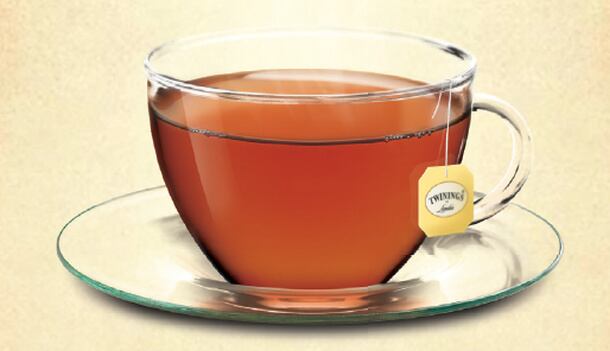In a lawsuit (Jenny Craig et al vs Twinings North America Inc 5:14-cv-05214) filed in Arkansas in May 2014, plaintiff Jenny Craig alleged that Twinings deceived shoppers by stating that its flavonoid-packed teas were a 'natural source of antioxidants', which she argued was an unauthorized nutrient content claim.
The FDA has not defined the term ‘source of…’ by regulation, but by saying its teas are a ‘source of antioxidants’, Twinings is implying that they contain a meaningful amount of antioxidants, and has strayed into the territory of nutrient content claims (which come with strict conditions of use), she argued.
For example, to be a 'good source of antioxidants’ a product must contain at least 10% of the recommended daily intake (RDI) for the antioxidant in question (eg. Vitamin C, vitamin E). But there is no established RDI for flavonoids, the antioxidants contained in Twinings teas.
But the judge begged to differ. In his Feb 5 order throwing the case out, US district judge Timothy L Brooks said a 'natural source of' antioxidants’ is not an implied nutrient content claim as Twinings did not imply an amount of antioxidants, and is therefore “not false or misleading as a matter of law”.
A second lawsuit in California making the same allegations is proceeding
While his conclusion seems fairly clear cut, it’s too early for Twinings and other companies using 'source of' claims to crack open the champagne, however, said legal experts, who noted that a federal judge handling a near-identical class action lawsuit* vs Twinings in California said that case could proceed (click HERE).

Why did the California lawsuit proceed and the Arkansas lawsuit fail?
David Biderman, a partner in Perkins Coie’s Consumer Class Action Defense practice, told FoodNavigator-USA that the different outcomes in Arkansas and California came down in part to “different judges interpreting the federal regulations differently”.
However, the cases weren’t exactly the same, he added: “In California, the plaintiff also referenced the Twining’s website where the claim was that teas were ‘rich in’ or ‘high in’ antioxidants, which gave the plaintiff a better hook for claiming that the natural claim related to the level, not just the presence of, antioxidants.”
Plaintiffs’ counsel have become very aggressive and some manufacturers may choose not to take the risk
So are manufacturers wise to steer clear of ‘source of’ claims or not in light of these lawsuits?
Said Biderman: “I would think manufacturers would still be careful about making the ‘source of’ claim because… some plaintiffs would still argue… that just calling out the presence of natural antioxidants somehow represents a claim regarding the level of antioxidants. I don’t think that argument is correct, but plaintiffs’ counsel have become very aggressive and some manufacturers may choose not to take the risk.”

Attorney: Proceed with extreme caution when it comes to ‘source of’ claims
Kristen Polovoy of Montgomery, McCracken, Walker & Rhoads LLP, also agreed that firms should proceed with caution, in part because the Western District of Arkansas decision holds “persuasive, but not mandatory / binding, authority for courts in other jurisdictions”.
But more importantly, she said: “Even assuming that other jurisdictions agree with Judge Brooks' rationale that the phrase ‘natural source of...’ is not an implied nutrient content claim, plaintiffs could still file suit under state consumer protection laws that the term ‘source’ was false and misleading, not because it fell short of FDCA nutrient-content standards but because reasonable consumers understood the term ‘source’ to mean the product had a certain percentage or level of a given nutritional factor.”
The litigation lightning rod potential for ‘source’ class actions could prove to be as much of a maelstrom as ‘natural’
She added: “This risk of litigation over ‘source’ itself as a term is not insignificant since, as the FDA pointed out in its warning letter in the Jonathan Sprouts case**, the FDA has not defined the term ‘source’ by regulation. Hence, the litigation lightning rod potential for ‘source’ class actions could prove to be as much of a maelstrom as ‘natural’ label litigation has been.
“Both terms are undefined by the FDA; thus, the class action potential is real, especially in states with particularly consumer-friendly statutes like New Jersey and California.”
So what is her advice for food and beverage companies?
Said Polovoy: “Make your label as specific, defined and accurate as possible, (contains ___% of the USDA RDI of ____") or use terms that courts where your product(s) are sold have found to be non-actionable, promotional puffery (e.g., "best").”

Twinings: No comment
Dan Martin,president and CEO of Twinings North America, Inc, told FoodNavigator-USA: “Due to the ongoing nature of this litigation, Twinings has no comment at the present time.”
Based in Clifton, New Jersey, Twinings North America is a subsidiary of UK-based food and beverage giant Associated British Foods.
*Lanovaz et al v Twinings North America Inc 5:12-cv-02646, filed in California in 2012. The judge certified a class for injunctive relief but not damages (click HERE).
** In March 2011, the FDA sent a warning letter to Jonathan’s Sprouts Inc saying that it did not meet the criteria for making nutrient content claims about antioxidants. Click HERE to read it.
